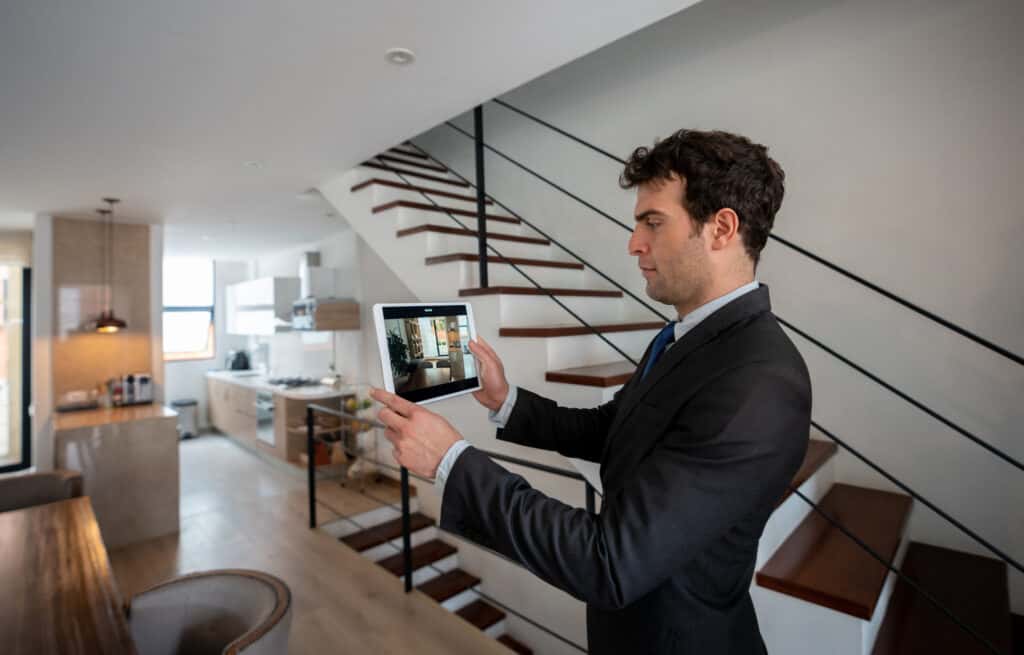Nowadays, the real estate industry is no stranger to the transformative power of technology.
From virtual tours to AI-driven insights, technology has redefined the way real estate agents interact with clients, making the process more efficient, transparent, and engaging.
For real estate agents looking to strengthen customer relationships and stand out in a competitive market, leveraging technology is not just an option—it's a necessity.
Here’s how you can harness the power of technology to elevate your customer relationships.
1. Virtual Tours and 3D Walkthroughs

(Photo from McKissock)
One of the most impactful technological advancements in real estate is the virtual tour. Virtual tours and 3D walkthroughs allow potential buyers to explore properties from the comfort of their homes. This technology saves time for both agents and clients by pre-qualifying interested buyers before scheduling in-person visits.
Tip: Invest in high-quality 3D cameras and software to create immersive and interactive virtual tours. Platforms like Matterport offer user-friendly solutions that can make your listings stand out.
2. Customer Relationship Management (CRM) Systems

(Photo from Medium)
A robust CRM system is the backbone of any successful real estate business. CRM systems help you manage client interactions, track leads, and streamline communication. By keeping all client information in one place, you can provide personalized service and timely follow-ups, which are crucial for building strong relationships.
Tip: Choose a CRM system tailored for real estate, such as Salesforce, HubSpot, or Zoho CRM. These platforms offer features like automated email campaigns, task reminders, and analytics to help you stay organized and proactive.
3. Automated Communication Tools

(Photo from NConnections)
Consistency in communication is key to maintaining strong client relationships. Automated communication tools like email marketing software, chatbots, and SMS marketing can help you stay in touch with clients regularly. These tools ensure that you never miss an opportunity to engage with your clients, whether it’s sending property updates, market reports, or holiday greetings.
Tip: Utilize platforms like Mailchimp for email marketing, Drift for chatbots, and Twilio for SMS marketing. Automate routine communications while ensuring a personal touch by segmenting your audience and tailoring your messages.
4. Social Media Engagement

(Photo from LinkedIn Pulse)
Social media is a powerful tool for building and maintaining relationships with clients. It allows you to showcase your personality, share success stories, and engage with your audience on a more personal level. Platforms like Facebook, Instagram, and LinkedIn offer various ways to connect with potential buyers and sellers, from live Q&A sessions to sharing behind-the-scenes glimpses of your daily operations.
Tip: Post regularly and mix up your content. Share market insights, client testimonials, property listings, and community events. Use stories and live videos to interact with your audience in real time.
5. Data Analytics and Market Insights
Understanding market trends and client preferences is crucial for providing value. Data analytics tools can help you gather and interpret data about your market and clients, allowing you to make informed decisions and offer tailored advice. By leveraging data, you can anticipate client needs, identify opportunities, and deliver personalized service that sets you apart from the competition.
Tip: Invest in analytics tools like Google Analytics, Tableau, or local real estate market analysis software. Regularly review the data to stay ahead of trends and tailor your strategies accordingly.
6. Personalized Client Portals

(Photo from OCAD)
Creating a personalized client portal can significantly enhance the customer experience. Client portals provide a secure space where clients can access property listings and communicate with you. This level of transparency and convenience builds trust and fosters stronger relationships.
Tip: Many CRM systems offer client portal features. Customize these portals to reflect your brand and make it easy for clients to find the information they need.
7. Virtual Reality (VR) and Augmented Reality (AR)
Taking virtual tours to the next level, VR and AR technologies offer immersive experiences that can captivate potential buyers. VR allows clients to experience properties as if they were there, while AR can overlay information and virtual staging on a physical property viewing. These technologies can make a memorable impression and help clients visualize their future homes more effectively.
Tip: Explore VR and AR solutions from providers like Oculus for Business or Augment. Incorporate these technologies into your marketing strategy to offer unique and engaging experiences.
To conclude, mbracing technology is essential for real estate agents aiming to build stronger, more meaningful relationships with their clients. By integrating tools like virtual tours, CRM systems, automated communication, and data analytics, you can provide exceptional service that meets the evolving expectations of today’s tech-savvy clients. Stay ahead of the curve by continuously exploring new technologies and refining your strategies to offer the best possible experience. Remember, in the world of real estate, building lasting relationships is the key to long-term success.